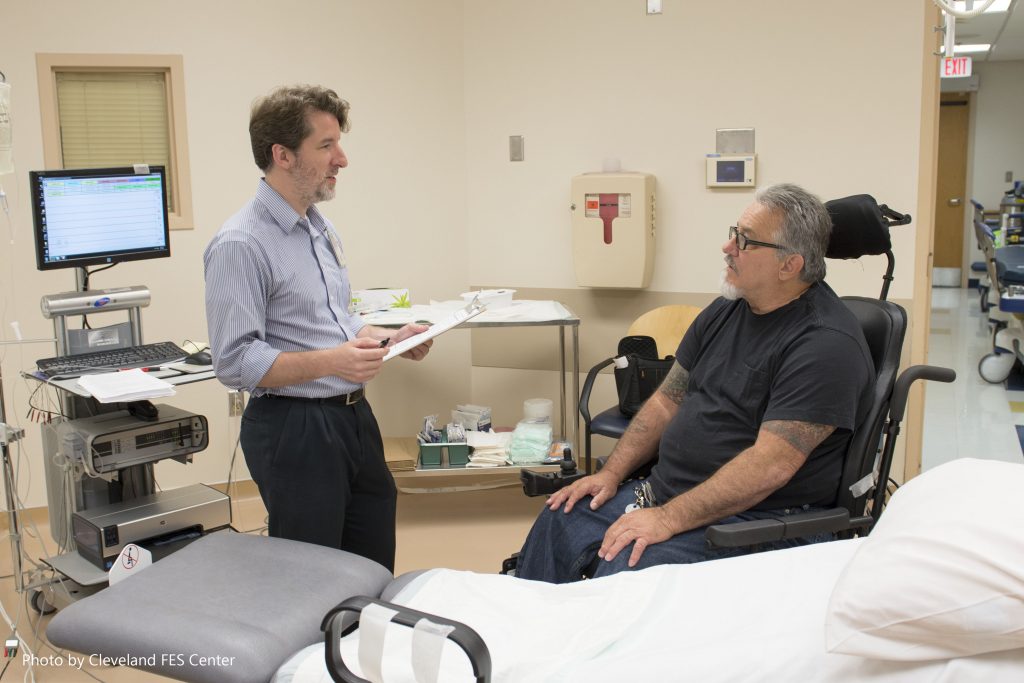Bowel issues occur in nearly all people after spinal cord injury (SCI) and one major complication is fecal incontinence (accidents). This complication has been repeatedly highlighted by people living with SCI as particularly life-limiting and in need of more options for interventions.
Researchers are working on a study to test the effect of genital nerve stimulation (GNS), with non-invasive electrodes, on the activity of the anus and rectum of persons after SCI. Recording anorectal manometry (ARM) endpoints tells researchers the function of those tissues. The study design (ARM without stim, ARM with stim, ARM without stim) is expected to allow investigators to conclude the GNS effect and whether it is likely to reduce fecal incontinence. The study will also collect medical, demographic, and bowel related functional information. The combination of all of these data may help predict who will respond to stimulation, what will happen when stimulation is applied, and if that stimulation is likely to provide an improvement in fecal continence for people living with SCI.

About This Study
This trial aims to test the effect of genital nerve stimulation (GNS), with non-invasive electrodes, on the activity of the anus and rectum of persons after spinal cord injury to see if it is likely to reduce fecal incontinence. The study will also collect medical, demographic, and bowel related functional information. The combination of all of these data should help predict who will respond to stimulation, what will happen when stimulation is applied, and if that stimulation is likely to provide an improvement in fecal continence for people living with spinal cord injury.
Study Information
This study will test the effect of genital nerve stimulation (GNS), with non-invasive electrodes, on the activity of the anus and rectum of persons after SCI. Recording anorectal manometry (ARM) endpoints tells us the function of those tissues and our study design (ARM without stim, ARM with stim, ARM without stim) will allow us to conclude the GNS effect and whether it is likely to reduce fecal incontinence. The study will also collect medical, demographic, and bowel related functional information. The combination of all of these data should help predict who will respond to stimulation, what will happen when stimulation is applied, and if that stimulation is likely to provide an improvement in fecal continence for people living with SC.
Detailed program information and criteria available at: https://scitrials.org/trial/NCT05626816
More About Bowel Function Studies

Improving the Lives of People with SCI
Contact Request
Researchers rely on individuals to serve as volunteers for program studies. Each study is designed to answer questions about a specific medical aspect or the effectiveness of a particular treatment. Through the commitment of research volunteers, knowledge gained and communicated to other medical professionals ultimately benefits the community.
If you would like more information about becoming a research volunteer please submit the information below.
